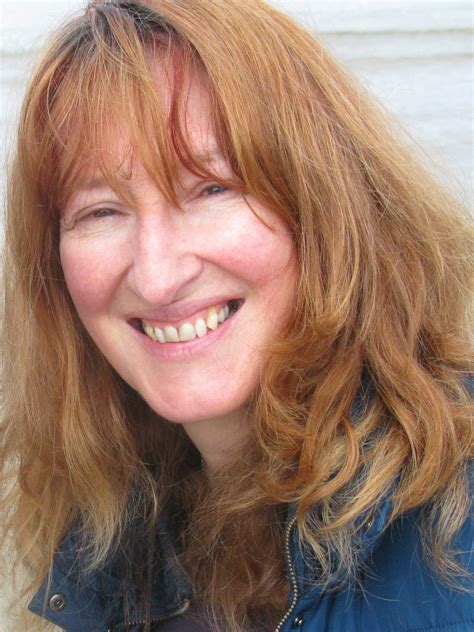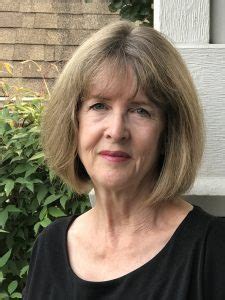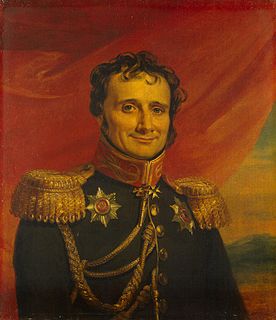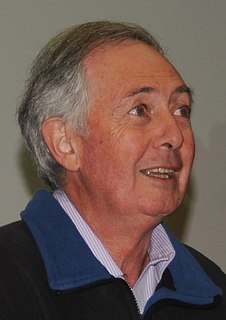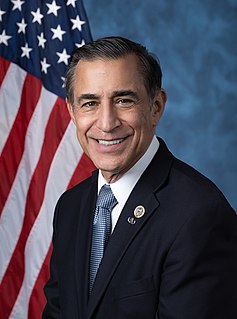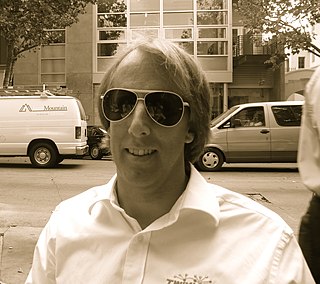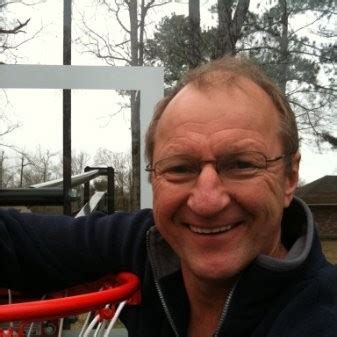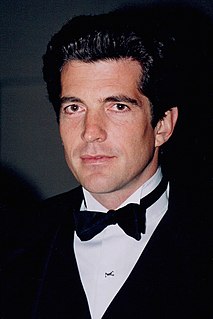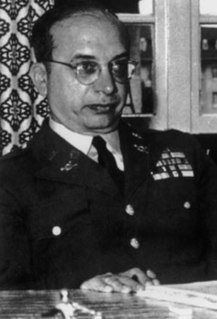Top 1200 Useful Information Quotes & Sayings - Page 12
Explore popular Useful Information quotes.
Last updated on November 25, 2024.
What we do is we combine information collected from any lawful source in a single FBI database so we don't miss a dot when we're conducting investigations in the United States. What we make sure of, though, is nobody gets to see FISA information of any kind unless they've had the appropriate training and have the appropriate oversight.
Consider: The human genome consists of about 3.3 billion base pairs. Since there are only four types of pair, that amounts to 0.8 gigabytes of information, or about what you can fit on a CD. With a microwave radio transmitter, you could beam that amount of information into space in a few minutes, and have it travel to anyone at light speed.
I try to see what the dream might be referring to - because the information in the world is being interpreted by my brain which only has the concepts derived from our five senses. So I think of the sequences in my dream as my brain doing its very best to process information in a way it knows I can deal with.
Learn to take losses quickly and cleanly. There is something about inside information which seems to paralyze a man's reasoning powers. Beware of barbers, beauticians, waiters - or anyone - bringing gifts of 'inside' information or tips. Don't try to be a jack of all investment. Stick to the field you know best.
Years ago, it was easier to make new things than it is now. The weight of experience weighs heavily, and the expectations; everybody wants to see something they haven't seen before. Now, with social media, with too much information, with the speed of information - all that is making it harder and harder to realize the objective.
Not many years ago, it was access to information and movement that seemed our greatest luxury; nowadays it?s often freedom from information, the chance to sit still, that feels like the ultimate prize. Stillness is not just an indulgence for those with enough resources ? it?s a necessity for anyone who wishes to gather less visible resources.
The notion that "applied" knowledge is somehow less worthy than "pure" knowledge, was natural to a society in which all useful work was performed by slaves and serfs, and in which industry was controlled by the models set by custom rather than by intelligence. Science, or the highest knowing, was then identified with pure theorizing, apart from all application in the uses of life; and knowledge relating to useful arts suffered the stigma attaching to the classes who engaged in them.
Governmental surveillance is not about the government collecting the information you're sharing publicly and willingly; it's about collecting the information you don't think you're sharing at all, such as the online searches you do on search engines... or private emails or text messages... or the location of your mobile phone at any time.
I think America is less safe on a lot fronts, and I disagree with the release of the information from Dianne Feinstein. I think she's as much a traitor to this country at this point as I thought about Edward Snowden and his release of information about other investigations and abilities from an intelligence standpoint.
But it is almost impossible to communicate with them [one's spies in the enemy camp] and receive the information they possess ... Even when the general receives from his spies information of movements, he still knows nothing of those which may since have taken place, nor of what the enemy is going finally to attempt.
If neuroscientific research shows that those mechanisms only contain comparative information about colour differences, and have 'thrown away' more fine-grained information about the absolute colours of single surfaces, then that would support my position, in a way that just introspecting our colour experiences can't.
A journalist gathers information for a media outlet that disseminates the information through a broadly defined 'medium' - including newspaper, nonfiction book, wire service, magazine, news Web site, television, radio or motion picture - for public use. This broad definition covers every form of legitimate journalism.
Were I disposed to consider the comparative merit of each of them [facts or theories in medical practice], I should derive most of the evils of medicine from supposed facts, and ascribe all the remedies which have been uniformly and extensively useful, to such theories as are true. Facts are combined and rendered useful only by means of theories, and the more disposed men are to reason, the more minute and extensive they become in their observations
The media plays an essential role in our culture. It is the Fourth Estate; it's an undeniably essential instrument in the great American experiment - in keeping our democracy functional. People have very strong opinions about what that means and how information should be disseminated to a population that requires information.
We get information in the mail, the regular postal mail, encrypted or not, vet it like a regular news organization, format it - which is sometimes something that's quite hard to do, when you're talking about giant databases of information - release it to the public and then defend ourselves against the inevitable legal and political attacks.
The magic happens when you take facts and figures, features and benefits, decks and PowerPoints - relatively soulless information - and embed them in the telling of a purposeful story. Your 'tell' renders an experience to your audience, making the information inside the story memorable, resonant and actionable.
Look, we're trying to explore other options to your retirement," the whitecoat said. "You might be useful to us in other ways." Because we're not that useful dead,"Nudge said thoughtfully. No," I agreed. "Well, maybe as doorstops." The whitecat made an "eew" expression. Or those things in a parking lot that show where the cars should stop," suggested Iggy. He closed his eyes and went stiff, to demonstrate what it would look like. Also an option.
I am confident that for the foreseeable future (barring some catastrophic event affecting economic, energy, electrical, and communications systems), many subpopulations that use information intensively (e.g., students, academics, library patrons, white collar workers) will be using some sort of portal information appliance.
It's crazy to me that in this world of electronic medical records Walmart has so much information about how we shop, but no one has that information about our health. Why can't my doctor say, 'Wow, Anne, based on your lifestyle and behavior, you're five years from being diabetic.' But I can go to Target, and they know exactly what I'm going to buy.
I think the most exciting thing is access to information. People's ability to document things and expose things that may have not otherwise been documented and exposed. All the information you want is available instantly, which is overwhelming, but I think can have a positive change on the political process and accountability for leaders and corporations.
She was obviously useful at the UN because she had a public persona before she ever got there. She was well known. She was a spokeswoman for many important things. When she got there, what she said was paid attention to, undoubtedly much more than would have been if just Joe Blow had been made our representative to the United Nations. In that sense, I think it was useful to have her there.
Too many scholars think of research as purely a cerebral pursuit. If we do nothing with the knowledge we gain, then we have wasted our study. Books can store information better than we can--what we we do that books cannot is interpret. So if one is not going to draw conclusions, then one might as well just leave the information in the texts.
The Internet has been an invaluable acquisition. I wonder how we would do without it. Information can be sent from one country to the other within the space of minutes, crossing channels, crossing oceans, crossing continents. But still, we can't compete with the might and power and wealth of those who dominate, control, and own the means of the production of information today.
When we were doing the "Angel Dust" thing we got information from the National Institute of Drug Abuse because we knew that if we went out and said something about angel dust people were going to ask questions about it and we wanted to be sure we had all the information to deal with it when those questions came up. So it's all a question of being as prepared as possible out front, so that if you are going to deal with information it'll be correct. A lot of people won't check it out but some people will.
Because your brain uses information from the areas around the blind spot to make a reasonable guess about what the blind spot would see if only it weren't blind, and then your brain fills in the scene with this information. That's right, it invents things, creates things, makes stuff up! It doesn't consult you about this, doesn't seek your approval. It just makes its best guess about the nature of the missing information and proceeds to fill in the scene.
An important verity about knowledge is that the brain works most effectively with consciously retained information. We more easily remember what we want to recall later. When we feed our fourteen billion brain cells with information that will enrich us and help others, we are really learning to Think Big.
I worry that the level of interrupt, the sort of overwhelming rapidity of information — and especially of stressful information — is in fact affecting cognition. It is in fact affecting deeper thinking. I still believe that sitting down and reading a book is the best way to really learn something.? And I worry that we’re losing that.
Energy, health care and education are just three examples of areas in which information and information management are critically important. How are we using our energy? What appliances in homes or business are consuming the most energy? When do they consume it? Can the load be shifted? How efficient are these devices?
I used to be skeptical when educators and technologists predicted that we may be entering a new era of oral culture, in which audible information will be at least as important as visible information. Now that I have adopted into my own daily life a device that makes music and spoken-word files easy to access from anywhere, I have tempered my skepticism.
Generally you should act somewhere between P40 and P70, as I call it. Sometime after you have obtained 40 percent of all the information you are liable to get, start thinking in terms of making a decision. When you have about 70 percent of all the information, you probably ought to decide, because you may lose an opportunity in losing time.
We still have to realize that if you are say a historian of the Civil War, you don’t know anything special about say Columbus or for that matter the 20th century. You are a consumer of that information, especially if it’s stuff like Columbus and the American Indians. That information isn’t even in history, much of it. Much of it is in anthropology or archeology.
I had the evidence that a crash did happen here....Give this information to the young people of the world and this country....They want it. Give it to them. Don't hide it and tell lies and make stories. They're not stupid....It's their information. It doesn't belong to the Army or the Department of Defence. If it's classified, take the classification off and give it to them!
I think it was Samuel Johnson who said, "There are two kinds of information in this world: that what you know and that what you know where to get." The tools help the latter, and that's what keeps us from going nuts. The sense of overload comes from the gap between that sudden jump in volume (of information) and the tools we have to make sense of it.




